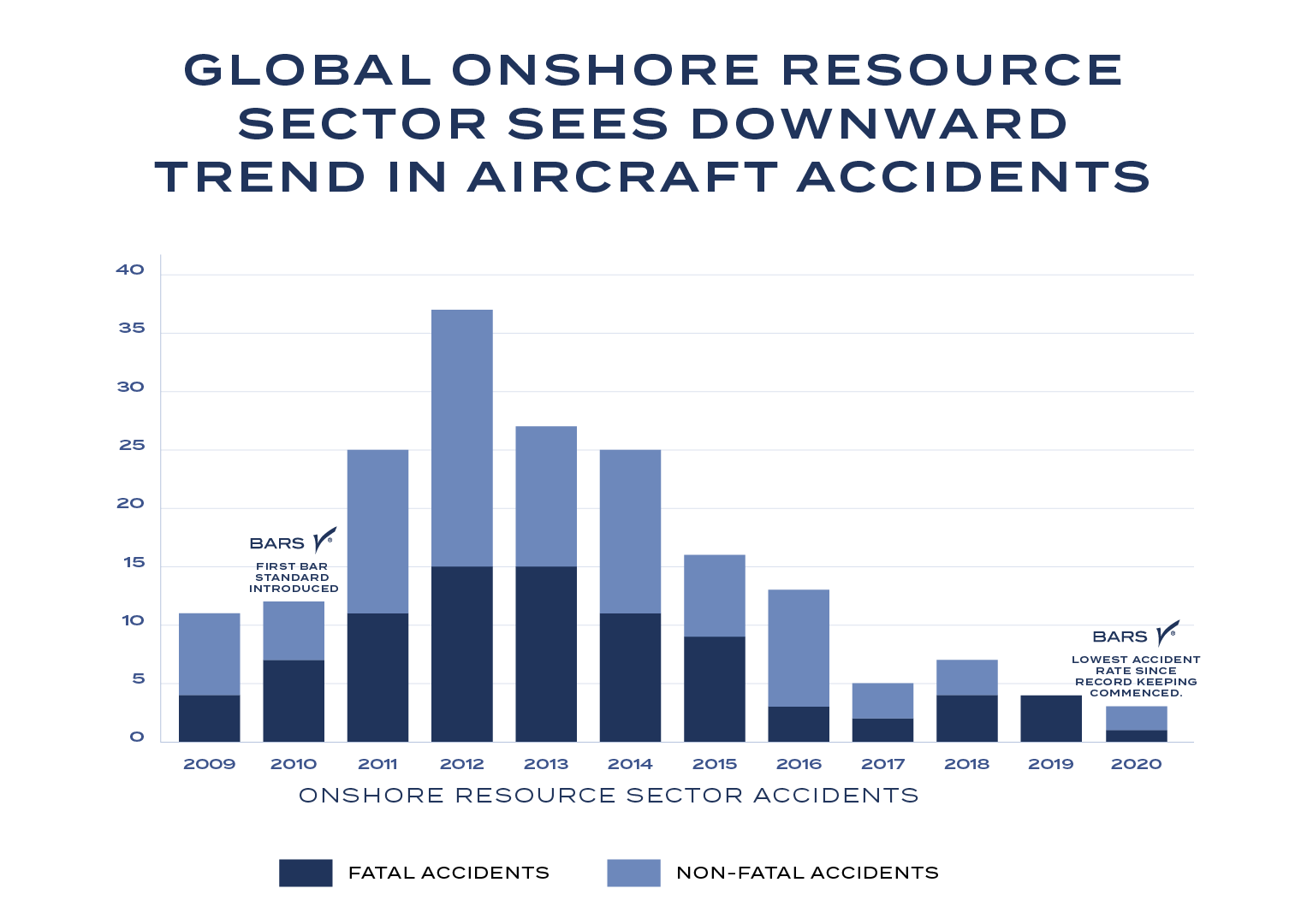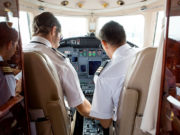
The onshore resource sector is trending towards its first fatality-free year, continuing a steady reduction in fatal aircraft incidents since the inception of Flight Safety Foundation’s Basic Aviation Risk Standard (BARS) Program.
Since 2012, BARS has been collecting accident data from its member organizations (BMOs) to identify safety risks (non-conformities) and develop solutions to advance the safety of the industry.
The dataset includes all known accidents associated with the mining sector and covers all aviation activities, including passenger operations, aerial mustering, helicopter sling loads, powerline construction and cargo.
BARS Program Director David Anderson said the downward trend demonstrates the impact of organizations implementing a consistent global standard.
“Implementing a single standard reduces the audit burden on the operator, provides consistency and standardization, and saves both the mining sector and the aviation suppliers a significant amount of money and time,” Mr Anderson said.
“A key element of the BARS Program’s design was gathering and analyzing the number of non-conformities and their respective close-out rates (CoR).
“We know that 99.8 percent of findings raised are addressed within the nominated time frame, which is a huge increase from the 60 percent CoR when we first started,” he said.
The data indicates 82 fatal accidents for a total of 263 deaths for 2010 to 2020.
A single fatality event was recorded in 2020, despite an increase in contracted aviation operations as a result of reduced commercial services, a first since record keeping commenced.
Newcrest Mining Senior Aviation Coordinator Mark Wheatley said BARS provides a holistic approach to mitigating risk.
“Implementing the BAR Standard into our organization has created a better understanding about the principles of aviation risk management and the benefits of doing the process properly amongst our personnel,” Mr Wheatley said.
“BARS also provide training programs that support the delivery of the audit program and provides personnel with greater safety assurance.”
Mr Anderson said he looked forward to the downward trend being replicated across other industry sectors.
“The Flight Safety Foundation, through the BARS Program, is proud to be a part of this ongoing investment in improving aviation safety within the mining industry and the aircraft operators supporting this sector,” he said.
“The BARS Program has proven to be adaptive, resilient, results driven and now key to maintaining the downward trend in contract aviation accidents.”
###
About Flight Safety Foundation the Basic Aviation Risk Standard Program
FSF is an independent, international and impartial non-profit that exists to champion the cause of aviation safety. The Foundation established the Basic Aviation Risk Standard (BARS) Program in 2010 to review aviation operators providing aviation services to the resources and other sectors. The BARS Program is made up of a suite of risk-based aviation industry standards with supporting implementation guidelines.
The BARS Program has operated for 10 years, with more than 757 audits in 37 different countries for more than 212 aircraft operators. As a result, about 214,357 questions have been asked as part of our structured audits, identifying some 15,359 non-conformities.
Media Contact:
Kate Cullen (Cole Lawson Communications)
+61499 770 147
kate.cullen@colelawson.com.au


